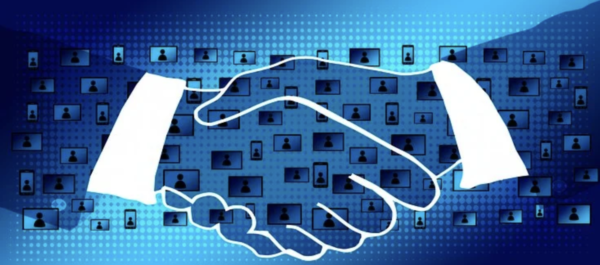A DAO is a Decentralized Autonomous Organization; even though it is a legal structure, it does not have a central governing body. The members of a DAO share a common goal and try to act in the entity’s best interest. The DAO stakeholders all participate in the entity’s management and decision-making. DAO can have several goals; it can be for charitable organizations that approve their donations or use it to lend services to users like Aave does.
DAO became popular through cryptocurrency; the very first DAO was established in 2016 and was called THE DAO. Its failure led to the split of the Ethereum network. But even after that scandal, DAOs continued, and now they are no longer a cryptocurrency niche but can work for all types of businesses.
How They Work
DAO doesn’t function in a hierarchical system, and the members are the owners and managers of the organization. They have their treasury which is usually held in cryptocurrency on blockchain technology. To participate in the decision-making, you would need a token representing your ownership, and other criteria may be required as it would differ for each DAO.
DAO operates using smart contracts, which are deployed on several blockchains. The smart contract outlines the rules and guidelines of the organizations. Those who have a stake in the DAO get voting rights and partake in decision-making. Any member of the DAO can contribute innovative ideas, and the entire group can input them. Decisions are made through a voting system that aligns with the rules outlined in the smart contract.
Are they Secure
Unlike traditional businesses, DAOs don’t function on an element of trust, not trust in other people. You do have to trust the code of the DAO to invest or buy tokens in it, but it is basically an organization of strangers with a shared goal and finances.
DAOs are transparent since all their actions are stored on the blockchain. This makes them more secure than a traditional business. All stakeholders can check the movement of funds and how they were spent on the blockchain. This means everybody knows what’s happening in the organization at any time.
How often have we seen a corporate fall because the accountant or CEO embezzled funds without anybody’s knowledge? Remember the Mirrors Newspapers pension fund debacle in the late 80s, where everybody was in the dark until the CEO’s death?
The DAO’s data is stored on blockchain technology, making it very difficult to hack. We live in an era where the real asset is client information, and physically companies are falling victim to cyber-attacks daily.
Advantages of DAO
- Using DAOs can eliminate the abuse of power we see in corporates today and reduce the cost of mitigating risk. In the traditional model, investors need to trust the CEO and top management before investing. With DAO, they need to trust the code and the smart contract and invest their money. This is not to say that DAOs never fail or get it wrong, but these issues would be due to external factors rather than fraud and corruption.
- All decisions in a DAO require participation from all the members. People work more creatively when they don’t have to worry about being scammed or cheated constantly.
- Audits can be done as and when and are less time-consuming and costly. The auditor would need access to the blockchain and smart contracts. And because the audit itself will be done using the same technology, there is no chance of manipulating the results.
- There are low entry barriers in a DAO, and anyone can be a part of a DAO. All you need is a digital ID and an internet connection. There are also various models within DAOs in which one can earn money. These range from work-to-earn to contribute-to-earn and, in some DAO, even play-to-earn.
Disadvantages
- DAOs are vulnerable to hackers, as was the case in 2016 when The DAO was hacked and $60 million worth of Ethereum was stolen.
- Flaws in smart contracts are hard to fix even after they have been identified, and this loophole poses a security risk for the entity.
- Even though DAOs are a legal structure, there is no legal framework for them in the legal system; meaning should any legal problems arise with a DAO, it may require numerous legal battles to solve.
- The blockchain infrastructure needed to run DAO consumes vast amounts of energy and has high emissions, which is a concern for the environment.
Lastly
DAO supporters have hailed it as a disrupter to the internet, finance, and business, and governments worldwide have started to develop regulatory frameworks for them. Wyoming in the USA has become the first state to recognize DAOs legally. The Wyoming DAO bill passed in July of 2021 recognizes DAOs as LLCs (Limited Liability Company).
What the future holds for DAOs is unclear, but as they are now, they offer a different and refreshing way of working and conducting business. Businesses can incorporate the DAO model in their existing business practices, especially if they hope to attract employees with scarce skillsets globally and more investors.


